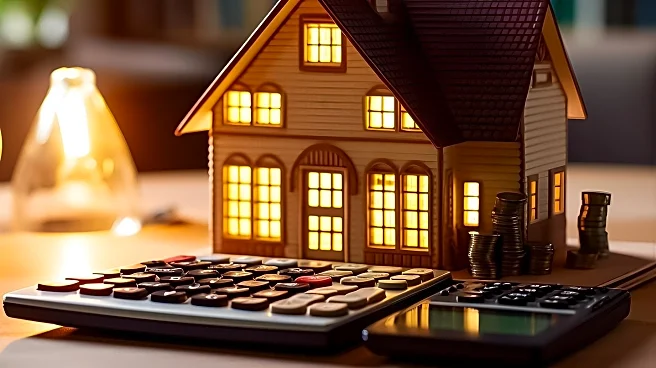What's Happening?
A recent study has highlighted the financial repercussions faced by homeowners who delay maintenance and repair projects. According to the research, 71% of homeowners have postponed at least one maintenance task this year, leading to significant costs that could have been avoided with timely upkeep. The study found that 40% of homeowners have already incurred major repair expenses that they believe could have been prevented. Alarmingly, 45% of homeowners admit to living in homes they consider less safe due to unaddressed repairs. The average cost of deferred repairs now exceeds $5,600, with many homeowners delaying essential repairs due to financial constraints. The study emphasizes the importance of regular maintenance, noting that minor issues can escalate into costly repairs if ignored. For instance, a small roof leak repair costing $200 can turn into a $20,000 replacement if left unattended.
Why It's Important?
The findings of this study underscore the critical need for homeowners to prioritize regular maintenance to avoid substantial financial burdens. Delayed repairs not only pose safety risks but also significantly impact property values. The study reveals that financial concerns are the primary reason for postponing maintenance, with 60% of homeowners citing cost as a barrier. This creates a cycle where necessary repairs are deferred, leading to more expensive fixes in the future. The study suggests that setting aside 2 to 4% of annual income for maintenance can help homeowners manage these costs effectively. By establishing a dedicated maintenance fund, homeowners can mitigate the financial impact of unexpected repairs and maintain the safety and value of their properties.
What's Next?
The study indicates a positive trend, with 71% of homeowners planning to prioritize preventative maintenance in 2025. Additionally, 96% of respondents believe that basic home maintenance skills should be taught in schools, highlighting a growing awareness of the importance of upkeep. Many homeowners are already taking proactive steps, with two-thirds having savings set aside for repairs, averaging $7,081. This shift towards preventative maintenance could lead to a reduction in costly emergency repairs and improve overall home safety and value.
Beyond the Headlines
The study's findings also suggest broader implications for the housing market and financial planning. As more homeowners recognize the importance of regular maintenance, there could be increased demand for home repair services and educational resources. Financial planners may also see a rise in clients seeking advice on managing home maintenance costs. Additionally, the emphasis on teaching maintenance skills in schools could lead to a more informed and prepared generation of homeowners, potentially reducing the prevalence of deferred maintenance issues in the future.










